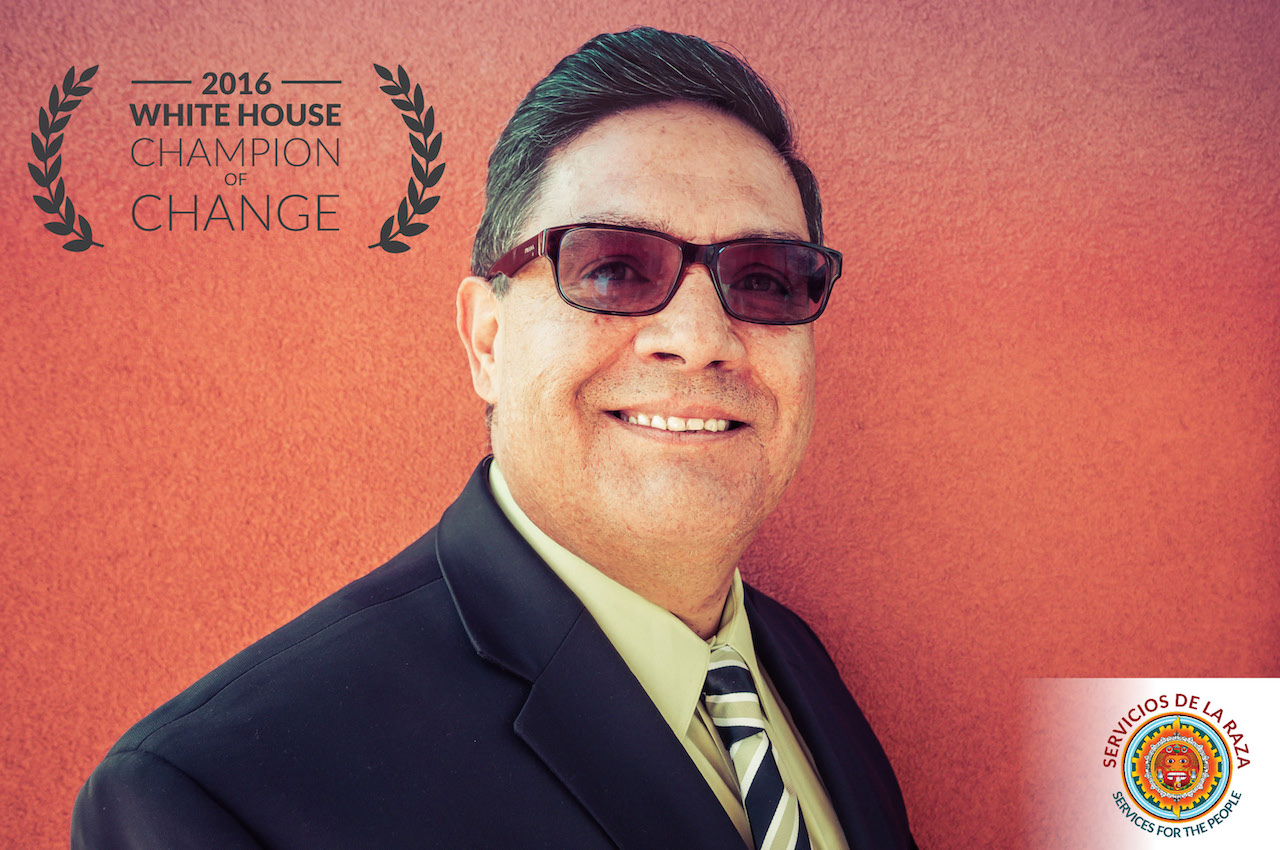The Local newsletter is your free, daily guide to life in Colorado. For locals, by locals.
On a Saturday in late January, Servicios de la Raza executive director Rudy Gonzales and his staff were working frantically to serve their community. That’s always the mission of the largest culturally responsive, linguistically specific human services provider in Colorado, but that weekend was particularly important: It was the last chance to sign up for 2016 health insurance under the Affordable Care Act—and the Latino population is the state’s largest racial demographic that’s eligible for Obamacare, yet uninsured.
Their efforts paid off: The event drew around 500 people to Servicios de la Raza’s West Colfax location, and around 240 of them left enrolled in health insurance. (Another 60 or so had to wait until the following day as the staff had already stayed five hours later than planned.) Open enrollment events nationwide usually average around 35 applications, seven times less than the number Servicios de la Raza raked in, Gonzales says. White House chief of staff Denis McDonough even mentioned the organization in a tweet on the final day of the open enrollment period.

McDonough’s tweet foreshadowed the award that Gonzales received on Friday as one of 10 designated White House Champions of Change for the Affordable Care Act. In the seven and a half years since he took over as the executive director of Servicios de la Raza, Gonzales has transformed the culture of the community-based agency—by expanding its social media presence, quintupling its budget, and partnering with more than 100 organizations in the area to offer Latino-specific services ranging from job training to mental health assistance. He led an education campaign known as “Adelante con Salud” (which loosely translates to “forward with health”), in which Servicios worked with Spanish-speaking media and held town halls and forums to educate the area’s Latino population on the Affordable Care Act. That’s translated into one of the highest enrollment rates in the state for Medicaid and Child Health Plan Plus, a low-cost insurance program for children and pregnant women.
“It was a closed system and I opened the system up,” Gonzales says. “When you put your customers and your community first, you’re always going to be successful.”
As the son of well-known poet and activist Rodolfo “Corky” Gonzales, Gonzales has always had the drive to serve his community. He worked at Servicios de la Raza when he was young, which he says is common for Chicanos in the Denver area. (The organization was founded 44 years ago.) After graduating from Metropolitan State University of Denver with a degree in English, he held a variety of jobs, primarily focusing on education, families, and what he calls “at-promise” (instead of “at-risk”) youth.
“All that experience came into play when I was hired to lead Servicios,” Gonzales says. “It was very close to being closed, but more important, it had lost its relevance to its community.”
He knew Servicios de la Raza could better engage its constituents if it simply tweaked the way it reached out to them. After conducting a survey to determine the community’s knowledge about the Affordable Care Act (which was possible with a grant from the Colorado Health Foundation), Servicios changed its message from “get yourself insured” to “get your family insured,” a key shift for the population it was trying to reach. The staff did outreach in mobile home parks and public housing developments and on college campuses, handing out contact cards and basic information after they’d held public forums.
“In the Latino community, whether we’re native English or native Spanish [speakers], one trait that crosses over is that we’re multiple-touch,” Gonzales says. “We’re not going to engage the first time; we may not even engage the second time; it may be the third or fourth time. That’s how we demonstrate our commitment is we continue to meet with them and talk with them.”
Now that Servicios has found so much success, Gonzales only hopes that local funding sources will recognize the organization’s value, and help keep its services afloat. “It’s pretty frustrating to understand and accept that [funders] question our ability to do our job,” Gonzales says. “The thing is, I don’t accept the things I cannot change—I work to change them.”
Follow editorial assistant Mary Clare Fischer on Twitter at @mc_fischer.








